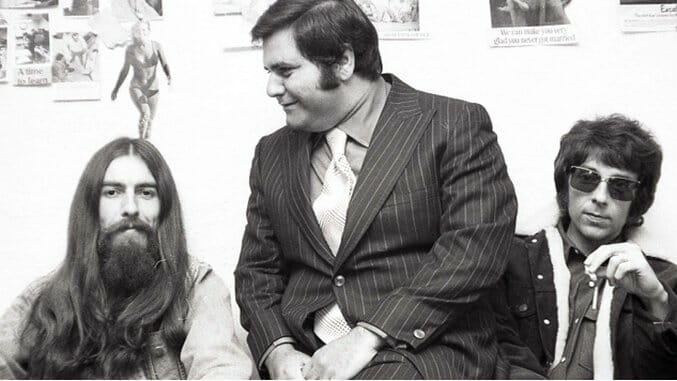The 6 Best Phil Spector One-Off Records

Phil Spector’s journey through popular music history is one of the most storied and controversial of any artist. Both celebrated studio master and convicted murderer, Spector is a complex figure whose notorious in-studio behavior and habit of taking financial advantage of singers contrast with his major contributions to rock ’n’ roll songwriting, his development of the iconic Wall of Sound aesthetic and his enduring influence across pop.
Following his magical run in the ‘60s—recording seminal tracks with The Crystals, The Ronettes, The Righteous Brothers, Ike & Tina Turner and others—Spector became a producer-for-hire for an interesting mix of artists in the ‘70s and early ‘80s, most prominently John Lennon, Plastic Ono Band and George Harrison.
Spector’s work in the decade is also notable for a series of one-offs with prominent artists who, for various reasons, recorded only one album with him in their careers. Taken together, these one-offs sometimes bear more resemblance to each another than the rest of the artist’s own catalog. And although some of the one-off artists or their fans have expressed disappointment with the way the records turned out, from a Spector fan’s perspective these are all pure gold. Here are six of the best (and sometimes bizarre) one-off records Spector worked on.
6. Leonard Cohen, Death of a Ladies Man
Of all the songs on all the one-offs, the most ostentatiously Spectorized track is the magnificent “Memories” on Leonard Cohen’s fifth album, 1977’s Death of a Ladies Man. The song pops out of the record as much as it does from the rest of Cohen’s discography. When Cohen lets out a wailing vamp at the end it’s as if he’s overcome with emotion, or exhaustion. Given the fraught circumstances of the recording sessions, it may well have been both.
A few of the tracks don’t really work, like “Paper Thin Hotel,” in which Spector thins Cohen’s voice to a flat, reedy tone that obscures Cohen’s lyrics and makes you long for Bob Johnston’s spare, vocally-oriented production. But others are worth another try, especially the monstrously indulgent but beautiful title track that slowly devolves over nine minutes as if Spector’s mighty Wall is being methodically torn down.
5. Dion, Born to Be with You
We know we’re in Spectorland the moment we hear the “Be My Baby” beat—the definitive rhythmic trademark of the master—come pounding in again during the opening title track. It might not have provided Dion the big comeback he’d been hoping for, but 1975’s Born to Be With You is a rich and satisfying record that celebrates Dion the balladeer, a different creature than we remember from his doo-wop days with the Belmonts. Dion’s soulful vocal performances are enhanced by the grand scope of Spector’s production. The stand-out tracks are the ballads, especially the throbbing “Only You Know” and the charged re-imagining of “He’s Got the Whole World in Hands” that, in textbook Spector fashion, transforms a canned standard into pure pop.
4. Yoko Ono, Season of Glass
Though Spector produced a few Plastic Ono Band records, this is the only Spector collaboration of Ono’s solo career. It’s worth revisiting for her stirring, uncompromising confrontation of loss and grief in the aftermath of Lennon’s assassination. Darkening melodic shifts recur through the album, mirroring an intriguing lyrical palette that alternates between point-blank emotional hits and searching poetry.
Spector’s influence is audible in “Mindweaver” via the vaguely Latin rhythmic textures and a dense, moody setting for troubling lyrics like, “he was a mind-beater, always on the phone, telling me all sorts of what I have done wrong.” The album includes both notably Spector-esque tracks like “Nobody Sees Me Like You Do” as well as classic Ono vocal explorations like “Extension 33” and in both cases their styles are a great fit, they can both go to extremes with complex ideas. Haunting interludes—some spoken, some found and some staged—connect the songs into a cycle, enhancing the sense of intimacy and being drawn into a family drama.